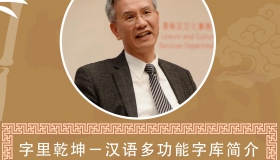Treatment of Outliers: Firm Heterogeneity in Managerial Incentive and Corporate Innovation
Speaker: Dr. Kam-Ming Wan (Hong Kong Polytechnic University)
|
Topic: |
Treatment of Outliers: Firm Heterogeneity in Managerial Incentive and Corporate Innovation |
|
|
Time&Date: |
12:00-13:15 pm, 2019/3/21 (Thursday) |
|
|
Venue: |
Room 619, Teaching A |
|
|
Speaker: |
Dr. Kam-Ming Wan (Hong Kong Polytechnic University) |
|
| Abstract: | Ordinary least squares (OLS) regressions are commonly used to estimate the effects of managerial incentives on corporate innovation. However, OLS estimates are vulnerable to two data problems. First, managerial incentives data have univariate outliers because some CEOs have exceptionally large equity incentives. Second, corporate innovation data have a discrete spike at zero because many firms never engage in corporate innovation. To handle univariate outliers, extant studies routinely perform data treatments. Nevertheless, these treatments are conceptual wrong because outliers are a model dependent concept. Therefore, this paper uses a mixture distribution model to handle the two data problems. In the first-stage, a cross-sectional logistic regression is used to objectively distinguish innovative industries from non-innovative ones. In the second-stage, quantile regressions are used to mitigate the excessive influence of outliers. Our out-of-sample tests indicate that the mixture distribution model outperforms the single equation model which uses all observations in the estimation. Our quantile regression results differ meaningfully between the two models. Specifically, we find a positive relation between corporate innovation and vega (sensitivity of CEO wealth to stock volatility) only through the mixture distribution model. We also find that OLS estimates of delta (CEO pay-for-performance sensitivity) are fragile to outliers whereas quantile regression estimates are not. Dropping only one firm from a sample of 635 firms reduces the OLS estimates of delta by more than 250%, rendering them statistically insignificant. |
More




